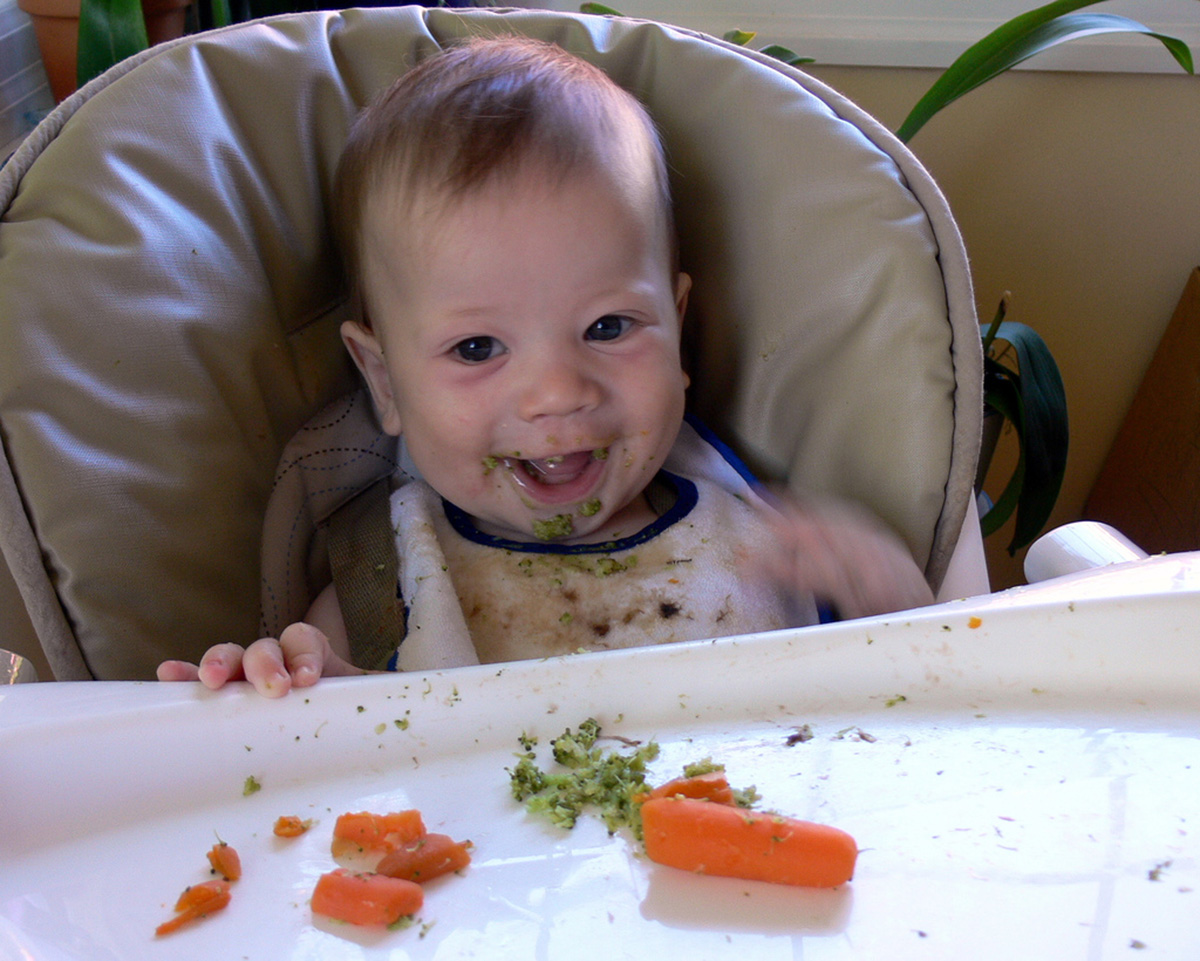Table of Contents
Starting your baby on solid foods is a bit of an organizational nightmare: you have to be fully aware of what foods to introduce when, set up a schedule, and essentially arrange your life around your baby's nutritional needs so that they can grow up to be strong and healthy. What's more, babies frequently spit their foods out, making meals a long, drawn-out process. Right?
Well, not necessarily. Baby-led weaning is a term referring to a method that puts your baby solidly — pun absolutely intended — in control of the foods they put into their mouths, and yet is stress-free for you, the parents. Parents who practice baby-led weaning (BLW) offer their babies solid foods when the time is right, but don't stress if they're not too eager. Rather, they'll simply offer their baby food again later. What's more, this method doesn't involve buying expensive baby-food jars or meticulously steaming and pureeing everything you will offer your baby, because you'll be offering your baby finger foods. Yes, it's the easy way out — but also, advocates say, the healthiest thing to do.

When Should You Introduce Solids?
The World Health Organization advises mothers all over the world to breastfeed their babies exclusively — meaning no formula, no water, and no solids, but only breastfeeding — until their babies are six months old. It clearly states that breastfeeding meets all a baby's nutritional needs during these first six months, adding that "it continues to provide up to half or more of a child’s nutritional needs during the second half of the first year, and up to one-third during the second year of life". The American Academy of Pediatrics (AAP) and many other health organizations completely agree with the WHO on this one.
While the current generation of new parents has largely grown on formula and rice cereal introduced as early as four months, the most up-to-date research strongly suggests that it is much better to let a baby's gut mature before introducing solid foods.Giving solids to babies who are not yet able to digest them properly can lead to stomach upsets, gas and constipation.
Waiting until they baby is ready, on the other hand, offers many benefits:
- A greater protection from illness through breastmilk.
- A properly working digestive system.
- A lower risk of obesity in the future.
- Potential protection from iron-deficiency anemia.
- For you, an easier time with the introduction of solids, possible continued lactation ammenorrhea (a lack of menstruation that will protect you from pregnancy if you are breastfeeding exclusively), and easier weight loss due to the calories burned by breastfeeding.
Solids: Signs Your Baby Is Ready
- Photo courtesy of jessicafm via Flickr: www.flickr.com/photos/jessicafm/572755154
- Photo courtesy of jessicafm via Flickr: www.flickr.com/photos/jessicafm/572755154
- Photo courtesy of Lars Plougmann via Flickr: www.flickr.com/photos/criminalintent/2542624200


Your thoughts on this